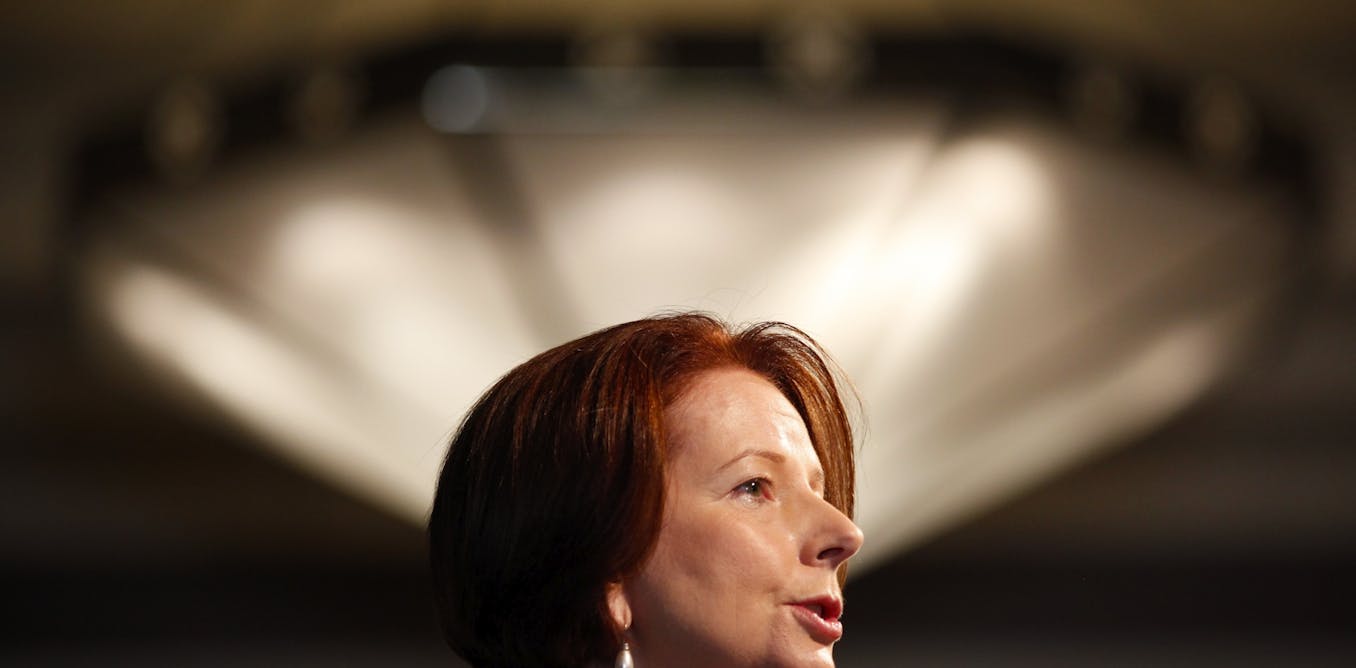
Can surpluses lead to lower interest rates?
- Select a language for the TTS:
- UK English Female
- UK English Male
- US English Female
- US English Male
- Australian Female
- Australian Male
- Language selected: (auto detect) - EN
Play all audios:

The Federal Government is continuing its pre-budget surplus sell, with Prime Minister Julia Gillard directly linking its plans to return the budget to surplus to lower interest rates.
Gillard will use a speech in Perth today to call on businesses to support it’s surplus strategy, saying it gives the RBA “room to move” on interest rates. But is there a direct link to be
made between surpluses and lower interest rates? The Conversation asked three economists. GRAHAM WHITE, SENIOR LECTURER, SCHOOL OF ECONOMICS AT UNIVERSITY OF SYDNEY The short answer is there
is no economic argument there. This would be the economic argument the government has put up in response to claims that it’s goal of a budget surplus is purely political, but the connection
between the budget balance and the level of interest rates is at best tenuous. And that’s putting the glossiest version on it. Interest rates for a start depend largely on what the Reserve
Bank is doing and they’ve got their eye on inflation, so the only way the surplus could influence interest rates on that score is if it could influence what the Reserve Bank thinks might be
happening with inflation. And that’s a real long shot. Any influence on inflation comes down to whether the government is stimulating the economy or whether it’s slowing expenditure out of
the economy. That may influence economic activity and perceptions by the RBA about inflation and what they might do about interest rates. But that’s not the same as the budget balance. The
budget balance might reflect what the government is doing in a discretionary way - whether it is deliberately increasing expenditure or what have you, or deliberating decreasing expenditure
and increasing taxes - but it depends on a lot of other things, such as the way the economy is moving. The budget balance is never completely under the government’s control. TIM BATTIN,
SENIOR LECTURER, FACULTY OF ARTS AND SCIENCES, SCHOOL OF HUMANITIES AT UNIVERSITY OF NEW ENGLAND There is no empirical or conceptual basis on which one can claim any strong or direct
connection between deficits or surplus on the one hand and higher or lower interest rates on the other. That’s especially the case when we’re in the situation we’re now in, where broadly
speaking the economic conditions should dictate to a government that they need to be very, very careful about moving the economy out of deficits too quickly. Many economists would agree that
it is very clear that we need to continue with deficits for the time being, and others would certainly be at least very wary about being too gung ho about a surplus. The evidence of any
indirect link (between surpluses and interest rates) that some people cite is mixed – if anything, it’s really the debt burden that matters, not deficits from year-to-year. Australia’s debt
burden is low. As we learnt during the global financial crisis - and as the wiser economists have been telling us years before that - governments need to engage in counter-cyclical demand
management, which in common language means being willing to spend when there is a need to do so. That’s going to happen from time to time. It really is quite puzzling from one angle to look
at the government being panicked towards moving to a surplus, when there is no need for it - to say the least - and when it may be quite harmful. SINCLAIR DAVIDSON, PROFESSOR OF
INSTITUTIONAL ECONOMICS AT RMIT UNIVERSITY It is _possible_ that a surplus will deliver lower interest rates but unlikely. If we think back to the early years of this century, the Howard
government delivered surplus after surplus, yet interest rates rose on average. It is possible to argue that interest rates were lower than than they otherwise would have been, but we should
be wary of a mechanistic understanding of interest rates. At the same time the government should be applauded for their determination to bring the budget into surplus.
